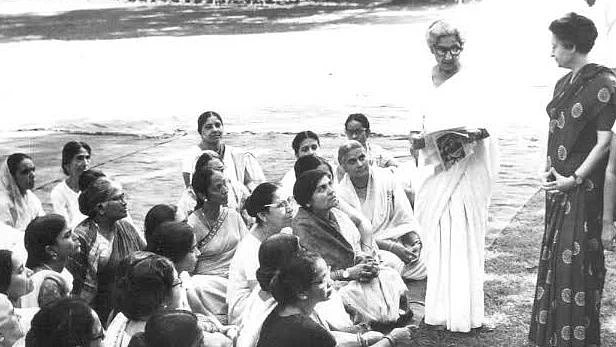(This article was originally published on 16 July 2015 and has been republished from The Quint’s archives on the death anniversary of Aruna Asaf Ali.)
At 19, out of the Sacred Heart Convent in Lahore and college in Nainital, she fell in love and married the man of her choice. Her father Upendranath Ganguly, an adventurous, liberal Brahmo who had migrated from Barisal in modern Bangladesh to what was called the ‘United Provinces’ then, opposed the marriage.
After all, his daughter was beautiful, talented – a teacher and firebrand – why would she marry a Muslim 23 years her senior? But she went ahead anyway, marrying Asaf Ali in 1928 in Allahabad.
Rebel With a Cause
She went to jail during the Salt Satyagraha, about two years after her marriage. Our colonial masters then refused her bail: someone argued in court that she was a ‘vagrant’. And well she might have been. But the argument backfired. Every woman imprisoned by the British refused release unless she was freed. And she was.
At 33, she decided revolution was her thing, but imprisonment was not. It was 1942, the world was at war, and the Congress had launched its full blown ‘Quit India’ movement. But there was no one to push it. Gandhi and Nehru were in jail.
Somebody had to become our Joan of Arc. She did it, August 8, 1942, unfurling the flag of Independence at Gowalia Tank Maidan in Bombay. Then she went underground, with a motley crew of Marxists and Congress workers.
She was the Queen of the Independence Movement. The Mahatma and Nehru doted on her – this Bramho, high caste Bengali lady who had married Asaf Ali, a Muslim, against all odds, gone to jail and then undercover after 1942.
The Modest Arunapishi
To me, she was Arunapishi all my life. She gave my father his first (and last) job at the Patriot, a Leftish newspaper, now defunct. Unlike folks today, she shrugged off official appointments, awards and so on.
A grateful government gave her an apartment in Lutyens’ Delhi. She decided it would better store books – and guests – like myself, as a child. Arunapishi continued to live in a small apartment on the street named after her dead husband: on Asaf Ali Marg.
She was honoured both in India and the Left universe in general, but took the honour quite lightly. After Leonid Brezhnev presented her the Order of Lenin, she casually gave me, a child, then, a red box with the medal. One year after her death, in 1997, she was awarded the Bharat Ratna: she could not have cared less.
Arunapishi had a car. A battered blue Fiat, and a Nepali driver called Nandan Singh, true to her till her last day. Nandan Singh and I, over the years, between Delhi and Calcutta, became friends.
On holiday once in Delhi, on the ride between the railway station and Punjab Bhawan where we were supposed to stay on Arunapishi’s hospitality, I saw gutted shops and buildings in Connaught Place. “Nandan Singh,” I asked, “What happened here?”
“Buraa aa gaya, bhaiya,” he said. It was early November, 1984, soon after Indira Gandhi, lifelong fan of Arunapishi had been shot and her party had taken cold vengeance in return. Arunapishi would never have approved of either.
Happy birthday Arunapishi – and thank you for everything, including the album of photographs you left behind with my mother.
(The writer is a Delhi-based senior journalist.)
